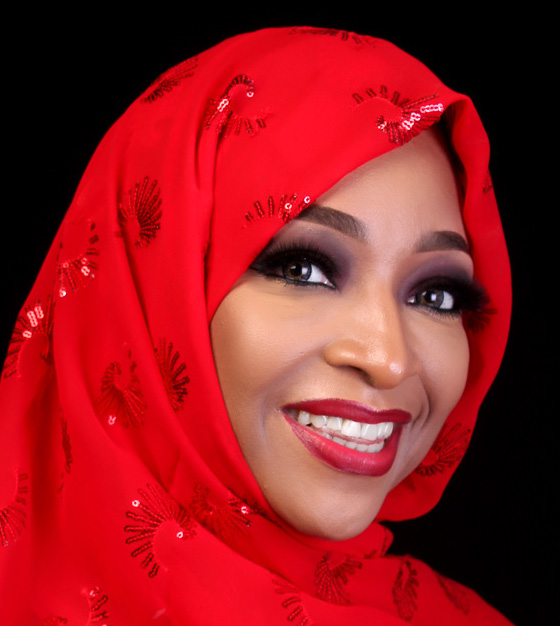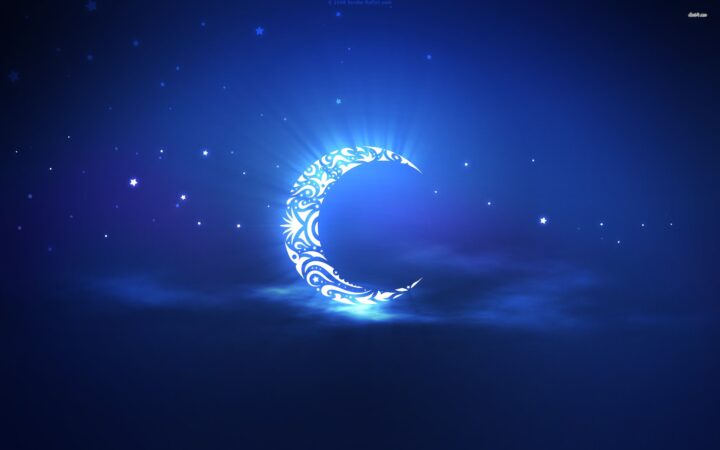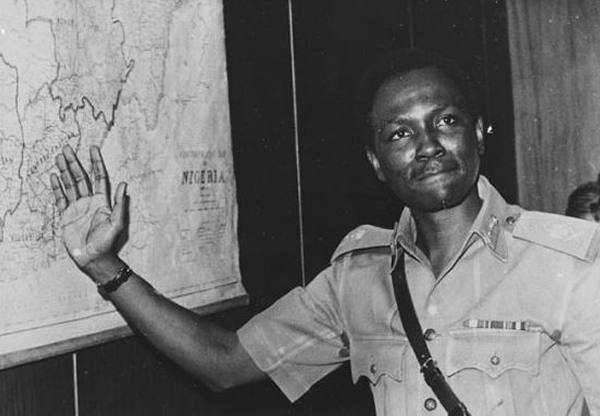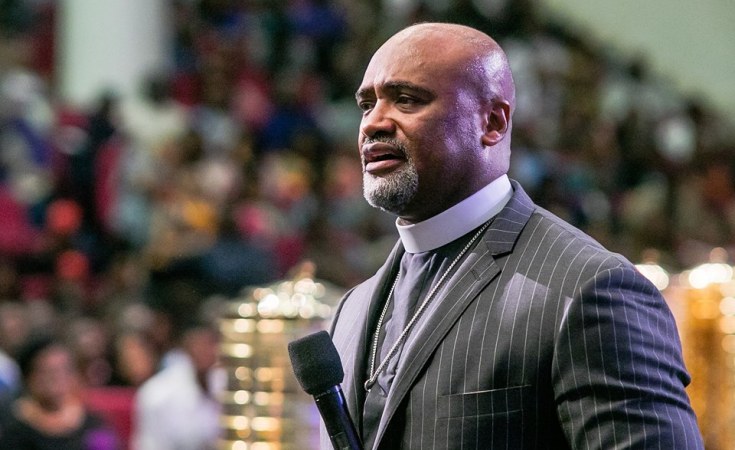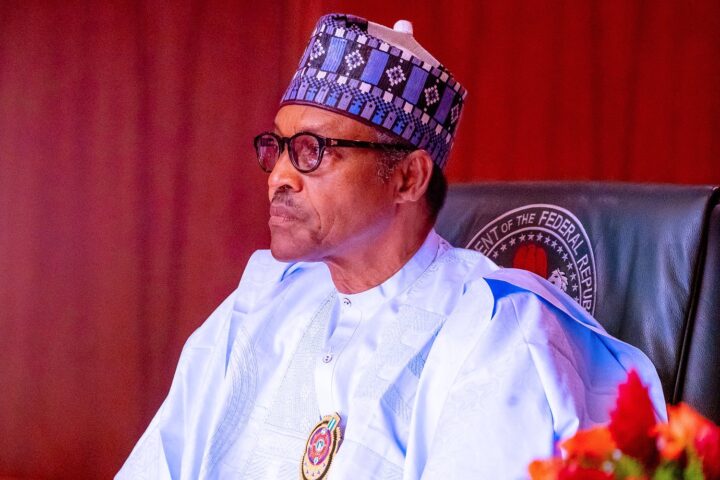As Iliyasu Adamu woke up to the news that the first sliver of the new moon had been sighted the night before, he felt a sense of optimism that he had not felt in a very long time. There was no doubt in his mind that this Eid ul-Fitr would be like no other. And as he continued to get ready to celebrate the end of the month-long fast of Ramadan with communal prayers in his Mosque, his mind was focused on the one duty that he was determined to fulfill by the end of the day…
Burgundy was Iliyasu’s favorite color; he had always wanted to wear a burgundy Sallah outfit. But it was not a color that was traditionally used to sew Babbar Riga with; men usually wore neutral, plain or pastel colored Babbar Rigas.
About four years ago, on a trip to the market, Iliyasu’s eye caught sight of the most beautifully burgundy colored material he had ever seen. Instantly, it was love at first sight for Iliyasu. So deep and instant was that love, that Iliyasu refused to let any thought that he would never have the courage or opportunity to wear this special material dissuade him from purchasing it. As soon as he left the market, Iliyasu went straight to his tailor with the instruction for the tailor to sew a special Babbar Riga with the most artistic yellow embroidery.
Since picking up the finished garment from the tailor all those years ago, Iliyasu had brought it home and put it at the back of his cupboard where it did nothing but collect dust and smell of mothballs. He had never had the courage to wear it in public. That was until this Sallah when Iliyasu bought the burgundy masterpiece out.
Advertisement
As Iliyasu put on his work of genius and struggled to move in the over-starched burgundy regalia, he felt a sense of pride and contentment to be wearing a garment that reflected the optimism and brightness that he felt within himself. This was a special Eid; in fact, the most special Iliyasu would ever mark. As he and his outfit jerkily and stiffly proceed to the Mosque for the Eid prayer, his mind went to the other important task he had promised himself he would fulfill today…
Ramadan, the month on the Islamic lunar calendar during which Muslims abstain from food, drink and other sensual pleasures from break of dawn to sunset, was usually a spiritually fulfilling but difficult period for Iliyasu. While he was satisfied with the inner peace he felt when he prayed and beseeched God for forgiveness and mercy during Ramadan, the abstention from food was really a great challenge for a ‘tuwo’ and ‘fura’ loving Iliyasu. He loved food almost more than anything else in his life and the humungous size of Iliyasu’s stomach exposed his secret habit of stuffing 6 servings of tuwo and 10 cups of fura in one meal. Usually Eid was a period that Iliyasu used to gormandize to make up for lost food during the month of Ramadan.
In the past Iliyasu had dedicated his prayers during Ramadan to seeking God’s intervention in the welfare of himself and his immediate family, but this year was a little different for him. Due to certain events Iliyasu had experienced within the last 18 months, this year, he went into his Ramadan prayer to pray to Allah for different needs. For Iliyasu, this Ramadan was not just an abstention from food and drink, neither was it about praying for the welfare of his family. Rather, it was an exercise in patience, understanding and discipline; an exercise in which he needed to search his soul and learn what the true message of Ramadan represents in his life.
Advertisement
There was an inner feeling that Iliyasu nursed which, up until 18 months ago, he never let anyone know. Iliyasu had an innate and vicious hatred for anyone that practiced a religion that was not Islam.
By the time Iliyasu realized that he nursed these deep feelings, he had tried to dismiss them because he worked with non-Muslims in his office. But over time, from one sectarian skirmish to another in his state, that hatred had grown into a severe loathing. From Iliyasu’s point of view, Muslims in his community were constantly accused, persecuted and targeted. The situation, in his mind, became worse because every time there was a sectarian and religious conflict, the media immediately put out a report saying that it was the Muslim community, which had launched the attack. This angered Iliyasu because he didn’t see the actions of the Muslims as an unprovoked attack but as retaliation for an earlier attack or injustice that was done to the Muslim community.
For over 8 years, Iliyasu had lived with his family in the same house. He loved where he lived because it had all the amenities that his family needed. But the one negative of living in the house for Iliyasu, was living next to his neighbor, Cletus.
Cletus Samson and his family had moved into the house next-door approximately 5 months after Iliyasu. In the 7 and half years that they were neighbors, the two men had barely spoken to each other. There seemed to be silent understanding of hatred between born-again Christian Cletus and devoutly Islamic Iliyasu.
Advertisement
Although there was a lot of contempt between the two men, it was not until the campaigns and elections of 2019 that it came to a head. With each sticking posters of their chosen candidates on their verandas, the men found themselves, for the first time, arguing about which poster took precedence on the communal wall that linked their houses.
This feeling changed one morning when Iliyasu saw the face of a grieving, drained and dejected Cletus outside. Cletus looked by every definition a broken man. Iliyasu came to learn that Cletus’s son had been murdered on his way from school during the latest sectarian violence. Feeling a strange and unwelcome empathy towards his neighbor, Iliyasu had to stop himself from going to hold Cletus. From that day on, Iliyasu constantly thought and dreamt of Cletus and the broken look on the man’s face. Confused and irritated with his feelings, Iliyasu decided to use the Holy period to pray on the matter.
As this year’s Ramadan came, Iliyasu moved to the Mosque to be in complete devotion to Allah and pray to God for an understanding in patience, discipline, kindness and the message of Ramadan. He wanted to know and be enlightened as to the right and correct thing for him to do as a devout Muslim. By the end of Ramadan and his devotion to prayer, there was no doubt that Iliyasu had well and truly been touched by the essence of the Holy month and was satisfied in his heart that all his queries had been answered.
Now he understood that the lessons of Ramadan were not just about self-discipline but about a personal growth to becoming better in every aspect of a person’s life. He learnt that Ramadan teaches us to be more understanding of the needs of others, to be more compassionate, to be more sincere and to have a feeling of brotherhood towards everyone. He learnt that, as humans, we can not divest ourselves from the misery of others despite their beliefs; that we cannot shrug it off saying that it does not concern us because to do this would be an injustice to humanity. He realized that it was not his duty to judge others and that everybody has a right to practice a religion of their choice; the ultimate judge is God. He learnt that all of humanity is the family of God and the most beloved to God is the one who is of most benefit to his children. He read of the Holy Prophet’s (SAW) teachings to treat the people of the Book, the Jews and the Christians, with respect and tolerance. He came across scriptures, which stated that The Prophet’s (SAW) first acts after his emigration to Medina was to establish an agreement with the Jews, which would ensure them full protection, respect their beliefs and give them equal rights. In Medina, many of The Prophet’s (SAW) neighbors were Jewish and he would regularly visit them, give charity to those who were needy and exchange gifts with them. One day, The Prophet (SAW) was with some Muslims when a funeral procession passed them by. He stood up out of respect. His companions were surprised and informed Him that it was a funeral of a Jew. He replied, “Was this not a human soul?’ demonstrating his solidarity and sorrow for this loss to the Jewish family.
Iliyasu learnt that it is these practices together with the pillars that have an impact on the quality of our lives and death on earth and the hereafter. He wished that every other extremist under the misguided belief that they were promoting the cause of Islam by hurting those who share a different belief to them would be touched by the message of understanding in the way he has and embrace a peaceful co-existence with all in the way the Prophet (SAW) did.
Advertisement
With that realization, he knew what he had to do in order to become a better Muslim. Iliyasu decided not to hate anymore and not to be ignorant in his duty as a human being and as a Muslim. He decided that, by the end of the day, he would go to Cletus’ house, apologize to him, console him, offer his hand in neighborly friendship to him and invite him over for Eid buffet.
It would hopefully be a new beginning for them; a beginning where they would respect each other, support each other in grief and look out for each other’s welfare as neighbors. That was the duty he was determined to fulfill by the end of the day.
Advertisement
Oblivious of the giggles and public stares of astonishment that followed his every move, Iliyasu adjusted his burgundy Baban Riga. Rustling and scrunching as he wobbled with his stomach ahead of him, he proceeded towards Cletus’ front door. Reaching his destination, Iliyasu smoothed his shocking garment over a stomach that was getting ready to be well and truly satisfied. He then rang the bell.
As a shocked Cletus opened the door to this huge burgundy and yellow eyesore, he froze in disbelief. Not knowing whether to laugh out hysterically or yell at the monstrosity before him, Cletus’ eyes fell on Iliyasus left hand, which held a bag that had a number of items wrapped in burgundy paper. Iliyasu outstretched his right hand gently towards Cletus in a gesture of friendship. A confused Cletus lifted his head to say something but quickly stopped when he saw the smile and look on his neighbors’ face.
Advertisement
In that moment, no words were necessary; both men had a complete mutual understanding of the conversation in their unspoken words. Instantly reading the regret, empathy, alliance and understanding on Iliyasu’s face, Cletus smiled back, nodded his head and stood aside to invite his neighbor into his house.
…This Ramadan, as new friends Iliyasu and Cletus sit down to celebrate Sallah as neighbors, one hopes that Nigerians all over, despite their beliefs and identities, will stop the ignorant rants and hate and embrace the spirit of brotherhood, understanding and neighborliness.
Advertisement
As we sight the first sliver of the new moon to mark the end of Ramadan and the beginning of the Eid ul-Fitr celebrations, here’s hoping that we can all embrace a spirit of compassion, respect, charity, forgiveness, understanding and peaceful coexistence much in the way Cletus Samson and a burgundy Iliyasu Adamu did.
I wish everyone celebrating Sallah, Eid Mubarak!
Views expressed by contributors are strictly personal and not of TheCable.
Add a comment
